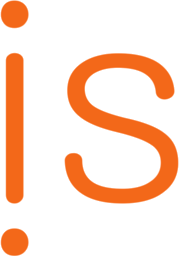Ehemalige Teammitglieder
Ehemalige Teammitglieder
Hier finden Sie alle Informationen zu den ehemaligen Teammitgliedern des IIS-Lehrstuhls.
Lebenslauf:
Seit März 2023: Digital Specialist bei McKinsey & Company in Zürich, Schweiz
Januar 2018 - Dezember 2022: Wissenschaftlicher Mitarbeiter/Doktorand am Lehrstuhl für Wirtschaftsinformatik und integrierte Informationssysteme der Universität Duisburg-Essen von Prof. Dr. Reinhard Schütte
- Thema der Promotion: A Machine Learning Marketplace for Federated Learning
Januar 2018 - Februar 2023: SAP Junior Consultant bei Consenso Management & IT Consulting in Bielefeld
Oktober 2016 - Dezember 2017: Consultant bei Ernst & Young - People Advisory Services in Düsseldorf
Oktober 2016 - Oktober 2017: Studium der Informatik (M.Sc.) an der Heinrich-Heine-Universität Düsseldorf
- Studienschwerpunkt: Rechnernetze
- Thema der Abschlussarbeit: Adaptive routing in opportunistic networks using global information
August 2016 - September 2016: Werkstudent bei Ernst & Young - People Advisory Services in Düsseldorf
März 2016 - August 2016: Studentische Hilfskraft an der Heinrich-Heine-Universität Düsseldorf am Lehrstuhl für Computational Complexity von Prof. Dr. Jörg Rothe
Seit Mai 2015: Studium der Mathematik (B.Sc.) an der Heinrich-Heine-Universität Düsseldorf
Oktober 2013 - September 2016: Studium der Informatik (B.Sc.) an der Heinrich-Heine-Universität Düsseldorf
- Studienschwerpunkt: Rechnernetze
- Thema der Abschlussarbeit: Implementation and evaluation of an opportunistic routing protocol in the simulation environment PeerfactSim.KOM
August 2013 - März 2014: Studentische Hilfskraft bei der BMS-Akademie in Dormagen
Forschungsgebiete:
Publikationen:
- Hütsch, M.: Demand forecasts for optimization purposes: a machine learning marketplace for federated learning (1). Universität Duisburg-Essen, Essen 2022. VolltextBIB DownloadKurzfassungDetails
As the importance of machine learning (ML) in technology has increased over past years, it is important to understand each application and its implications for ML individually. As a sample application of ML, demand forecasts occupy a special position in industry and retail and are used in numerous optimization activities, such as price optimization. In past years, demand forecasting has transformed the way retailers and industry replenish their goods. From a manual process, forecast-driven replenishment processes are now used. While this process has very few requirements for the ML-based demand forecast, this changes when further processes are transformed. While optimizing prices, demand forecasting requires elasticity regarding optimization objectives. When ML methods are used for demand forecasting, there must be sufficient data to learn the proper elasticity requirements. To overcome the problem of missing historical data resulting in low elasticity and thus bad optimization performance, we present a method for transferring knowledge between articles and companies to train shared ML models. For the first time, we are able to optimize prices without generating historical demand data for all possible prices. Evaluations of a design science project show that federated learning with neural networks achieves good forecasting accuracy and high elasticity.
- Hütsch, M.; Wulfert, T.: Design Principles for Machine Learning Marketplaces in Enterprise Systems. In: Hawaii International Conference on System Sciences (HICSS). Hawaii 2022. PDFBIB DownloadKurzfassungDetails
While standardized enterprise systems (ES) have become widely accepted, this is not the case for machine learning (ML) implementations, which are mostly developed individually in company-specific projects. Necessary historical data and rare ML capabilities result in a low cross-market ML utilization. To overcome the high usage barriers of ML, it should be incorporated into ES in a standardized manner. Therefore, we propose to implement an ML marketplace. While marketplaces in ES already exist, this paper proposes a marketplace dedicated to the exchange of ML models in a federated learning approach. Accordingly, this work formulates four meta requirements based on interviews, which are structured by marketplace governance dimensions. With these meta-requirements, an ML marketplace was implemented in a design science research project, from which eight design principles are derived. The design principles address governance dimensions for making ML accessible to many companies and allow them to integrate ML into existing ES.
- Hütsch, M.; Wulfert, T.: A Structured Literature Review on the Application of Machine Learning in Retail. In: Proceedings of the 24th International Conference on Enterprise Information Systems (ICEIS). (Online Event) 2022. BIB DownloadDetails
Lehrveranstaltungen:
Begleitete Abschlussarbeiten:
- Mit Webcrawlingtechnologien zum Semantik Web in Wissensdatenbanken: Illustriert am Beispiel von Microsoft Docs (Bachelorarbeit Wirtschaftsinformatik)
- Ein mitarbeiterindividuelles ERP-System als Lösungsansatz für kleine bis mittelständische Unternehmen (Bachelorarbeit Wirtschaftsinformatik)
- Verbreitung von Technologien in Organisationen mit Fokus auf Kommunikation - Eine Literaturrecherche (Bachelorarbeit Wirtschaftsinformatik)
- State of the Art der Analyse von Netzeffekten von Enterprise Systems – unter besonderer Berücksichtigung zunehmender PaaS-Bestrebungen der Softwareherseller (Bachelorarbeit Wirtschaftsinformatik)
- Berücksichtigung des IT-Wertbeitrags in bestehenden Projektmanagementansätze (Bachelorarbeit Wirtschaftsinformatik)
- An agent-based modelling of innovation implementation in companies using social and organizational aspects (Masterarbeit Wirtschaftsinformatik)
- Analysis of PaaS offerings from enterprise system manufacturers (Bachelorarbeit Wirtschaftsinformatik)
- Modellierung und Simulation von Änderungen institutioneller Prozesse und IT-gestützter Kommunikation in betriebswirtschaftlichen Organisationen (Bachelorarbeit Wirtschaftsinformatik)
- Methoden für den Wissenstransfer zwischen maschinell lernenden Modellen – Evaluation von Verfahren mittels Umsatzprognosemodellen für den Einzelhandel (Bachelorarbeit Wirtschaftsinformatik)
- Methoden für den Wissenstransfer zwischen maschinell lernenden Modellen – Evaluation von Verfahren mittels Umsatzprognosemodellen für den Einzelhandel (Bachelorarbeit Wirtschaftsinformatik)
- Ein Implementierungsleitfaden für die Einführung von Chatbots im Verkaufsprozess von Handelsunternehmen (Bachelorarbeit Wirtschaftsinformatik)
- Nutzerakzeptanzanalyse von ERP-Systemen: Eine Fallstudie in einem mittelständischen Unternehmen (Bachelorarbeit Betriebswirtschaftslehre)


